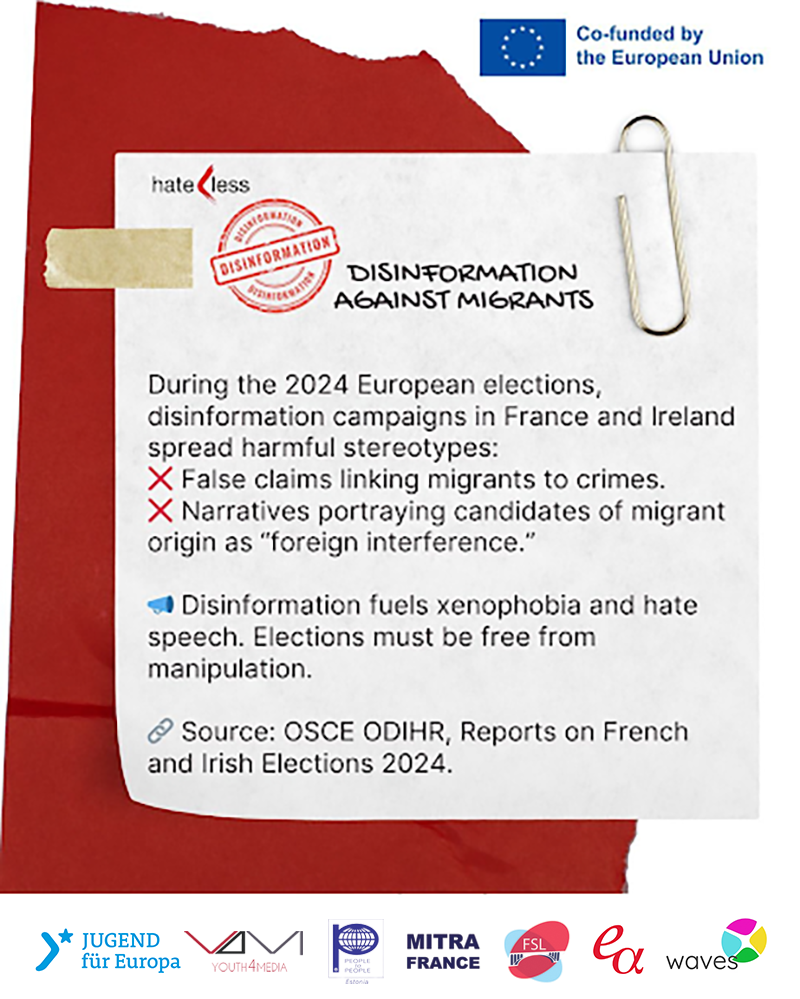Harmful Rhetoric in EU Elections: What Last Year’s Trends Reveal About Online Hate
Last year’s European Parliament elections once again demonstrated how digital spaces shape political conversations and how quickly harmful rhetoric can spread. According to the OSCE Office for Democratic Institutions and Human Rights (OSCE ODIHR), the 2024 election cycle saw increased use of hostile language, including racism, misogyny, xenophobia, islamophobia, intimidation, and even calls for violence.
Much of this rhetoric circulated online through algorithmic amplification. This amplification is driven by the “Attention Economy” and the human “Negativity Bias”: social media algorithms prioritize emotionally charged, negative content because it generates higher engagement (outrage, anger, quick shares).
The algorithm interprets this high engagement as “interest,” pushing the toxic content to wider audiences. This feedback loop disproportionately boosts extreme voices, effectively shifting the Overton Window (the range of acceptable public opinion) toward more polarizing positions, which severely impacts the fairness and integrity of democratic processes.
This pattern is consistent with research indicating that hostile narratives spread more rapidly than neutral or positive information. Studies from the EU Agency for Fundamental Rights (FRA, 2024) confirm that exposure to dehumanising or threatening language increases the likelihood of accepting or repeating hate speech, especially among young people who are active on social media platforms.
For the HATE-LESS.EU project, these insights strengthen the need for structured educational approaches that address both emotional and cognitive responses to online content. Understanding how harmful narratives develop and why they spread so efficiently helps young people build the resilience and critical thinking needed to navigate digital environments safely.
By analysing last year’s election patterns, we contribute to a broader effort to create safer digital spaces, support democratic participation, and reduce the impact of harmful rhetoric on public debate.
Sources:
- OSCE ODIHR. Final Report on the 2024 European Parliament Elections (2024)
- EU Agency for Fundamental Rights (2024). Hate Speech & Online Behaviour Survey
GDI (2024), Gendered Disinformation in the European Parliamentary Elections




